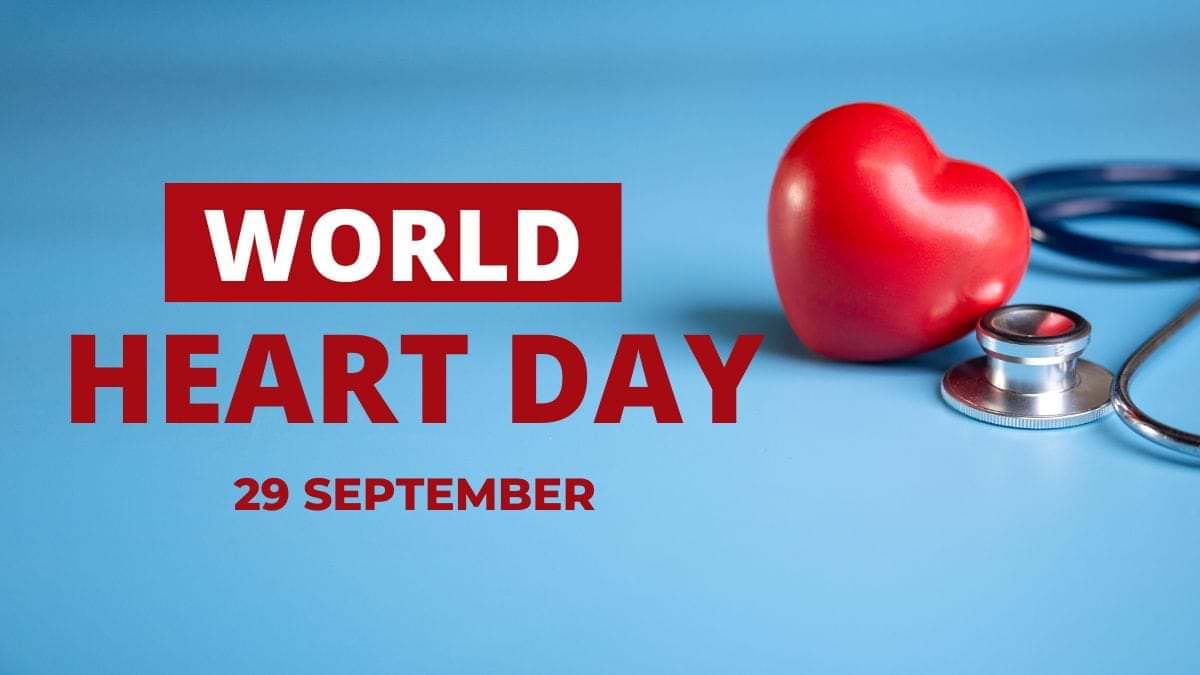
Heart diseases continue to be a leading cause of death worldwide, accounting for millions of lives lost every year. In an effort to raise awareness and promote heart-healthy lifestyles, World Heart Day is observed annually on September 29th. This international campaign aims to educate individuals about the importance of cardiovascular health and encourage them to take proactive measures to prevent heart disease. Let’s discuss the significance of World Heart Day and ways to raise awareness.
History of World Heart Day
World Heart Day was first introduced in 1999 by the World Heart Federation (WHF) and the World Health Organization (WHO). Antoni Bayés de Luna, the WHF president from 1997 to 1999, was the one who came up with the idea for this yearly event. The inaugural World Heart Day celebration took place on September 24, 2000, and it was initially observed (up until 2011) on the final Sunday in September. The day serves as a platform to unite individuals, communities, and organizations worldwide in their commitment to reducing the burden of cardiovascular diseases. (Encyclopedia Britannica)
Key Objectives
Every year, World Heart Day concentrates on a particular set of core themes and goals to direct its advocacy activities. These messages stress how critical it is to recognize risk factors, form healthy routines, and seek treatment and early diagnosis. The main goals are as follows:
Awareness-building: World Heart Day aims to educate people about the risk factors for heart disease, such as smoking, a poor diet, inactivity, and high blood pressure. The program aims to empower individuals to make wise decisions for their cardiovascular health by teaching them about these variables.
Promoting healthy lifestyles: A key component of World Heart Day is encouraging healthy behavior, such as regular exercise, a balanced diet, and abstaining from cigarette use. These lifestyle modifications significantly contribute to avoiding heart disease and enhancing general health.
Promoting heart-healthy environments: World Heart Day calls on public officials and urban designers to provide settings that stimulate physical exercise, provide access to wholesome food, and minimize exposure to environmental dangers. These programs can help make people healthy and reduce the occurrence of heart disease.
(World Heart Federation)
Effective Strategies for Cardiovascular Health
- Regular physical activity: Engaging in moderate-intensity aerobic activities such as brisk walking, cycling, or swimming for at least 150 minutes per week can significantly reduce the risk of heart disease (WHO, 2021). Finding enjoyable ways to stay active can help make exercise a regular part of your routine.
- Balanced diet: Consuming a diet rich in fruits, vegetables, whole grains, lean proteins, and healthy fats can promote heart health. Limiting the intake of processed foods, added sugars, and excessive salt is crucial in maintaining a balanced diet.
- Smoking cessation: Quitting smoking is one of the most impactful actions individuals can take to protect their hearts. Seeking professional support, using nicotine replacement therapies, and joining support groups are effective strategies to quit smoking successfully.
- Regular health check-ups: Regular health check-ups and screenings enable the early detection and management of cardiovascular risk factors such as high blood pressure, high cholesterol levels, and diabetes. Timely intervention can help prevent the progression of these conditions.
(World Health Organization)
World Heart Day plays a vital role in global efforts to combat cardiovascular diseases and promote heart-healthy living. By spreading awareness, encouraging healthy habits, and advocating for supportive environments, this annual event aims to reduce the burden of heart-related illnesses worldwide. Embracing the recommended strategies for cardiovascular health, such as regular physical activity, a balanced diet, smoking cessation, and regular health check-ups, can contribute to a healthier future for individuals and communities alike.
Emergency Services
Our facility is equipped to handle a cardiovascular emergency. We have dedicated Board-Certified Emergency Physicians standing by to provide immediate care without the wait of a large metropolitan hospital. When minutes matter, we are a preferred local community emergency medicine solution.
Works Cited
“World Heart Day.” Encyclopedia Britannica, Encyclopedia Britannica, Inc., www.britannica.com/topic/World-Heart-Day
“World Heart Day.” World Heart Day, 26 May 2023, world-heart-federation.org/world-heart-day/.
“Cardiovascular Diseases (Cvds).” World Health Organization, www.who.int/news-room/fact-sheets/detail/cardiovascular-diseases-(cvds).
If you have questions about Cardiovascular Health, please contact us here: CONTACT
















